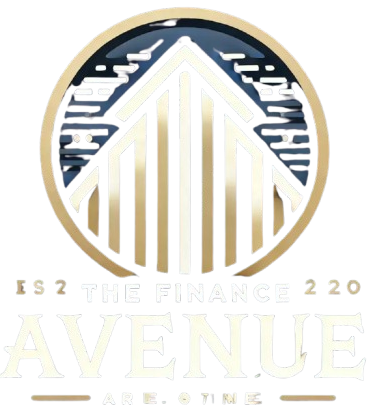Best 1-Year CD Rates for February 2025: Up to 4.60%
Category
Categories

The leading 1-year CD rate currently stands at 4.60% APY offered by Vibrant Credit Union, surpassing the national average rate for a 12-month CD by more than 2.5 times. All the CDs and rates featured in our rankings were gathered, verified, and open for enrollment as of Feb. 7, 2025.
“For individuals or households looking to maximize their savings, 2024 might represent the final year where CD rates exceed 5.00% in the foreseeable future,” remarked The Finance Avenue Editor-in-Chief Caleb Silver. “The Federal Reserve’s latest dot plot suggests interest rates could range between 4.00% and 5.00% in 2025, possibly dipping to 3.00% to 4.00% by 2026.”
Highlighted below are the top CD rates provided by our partners, as well as the most competitive CD rates available nationwide based on our comprehensive research.
Best 1-Year CD Rates
To discover the top 1-year CD rates across the nation, The Finance Avenue diligently evaluates CD rates from numerous banks and credit unions on a daily basis. Since 2019, we have been monitoring CD rates and consider essential factors such as term length, early withdrawal penalties, and minimum deposit requirements to assist our readers in selecting the most suitable CD. Our rankings for 1-year CDs encompass CDs with terms ranging from 10 to 14 months and minimum opening deposits up to $25,000.
In instances where multiple institutions offer the same annual percentage yield (APY), we prioritize CDs based on the shortest term duration, followed by CDs requiring a lower minimum deposit. In cases of a tie, institutions are listed alphabetically.
The CDs featured in this compilation are ideal for individuals aiming to achieve short-term savings or investment objectives. If committing to a 1-year CD seems too long, alternative options such as exploring the best CD rates for shorter terms or opting for a high-yield savings account may be considered.
Why You Can Trust Our Recommendations for the Best 1-Year CD Rates
The Finance Avenue gathers numerous CD rates from various banks and credit unions daily. In evaluating CD rates, we consider essential factors such as term length, early withdrawal penalties, and minimum opening deposit requirements to aid readers in choosing the most suitable CD.
Since its establishment in 1999, The Finance Avenue has been assisting readers in finding the best CD rates starting from 2019. Initially, in 2019, the highest rate on a 1-year CD stood at 2.60%. Throughout the years, we witnessed fluctuations in CD rates, eventually returning to current levels in 2024. Presently, the leading 1-year CD rate is more than double the rate observed at the start of our coverage on the best CD rates in 2019.
The Finance Avenue’s Top Recommended Nationwide CDs
The Finance Avenue suggests CDs that are widely available nationwide and usually offer interest rates three times higher than the national average. To be considered for our rankings of 1-year CDs, the minimum initial deposit for each CD must not be more than $25,000. Additionally, these CDs must be provided by a bank insured by the FDIC or a credit union insured by the NCUA, protecting deposits up to $250,000 per account holder. Our 1-year CD rankings encompass terms ranging from 10 to 14 months.
In the News
The Federal Reserve maintained interest rates at its January 29 meeting, pausing a series of rate cuts that began in September. Since September, the federal funds rate has decreased by a full percentage point to a range of 4.25%–4.50%, the lowest range since February 2023. The committee hinted in December that rate cuts in 2025 would be less aggressive, and the decision in January confirms this stance. Certificate of Deposit (CD) rates are closely tied to the federal funds rate, so it is anticipated that CD rates will decrease following the Fed’s rate cuts.
Vibrant Credit Union – 4.60% APY
Vibrant Credit Union is currently offering a 4.60% APY on their savings account. This rate is competitive and can help you grow your savings effectively.
Credit Human – 4.55% APY
Credit Human offers a competitive annual percentage yield (APY) of 4.55% through Credit Human.
Securityplus Federal Credit Union – 4.50% APY
TotalBank – 4.50% APY
One American Bank – 4.46% APY
One American Bank offers a high-yield certificate of deposit (CD) from One American Bank with an annual percentage yield (APY) of 4.46%. This competitive rate provides a great opportunity for savers to earn a good return on their investment.
Prime Alliance Bank – 4.45% APY
Prime Alliance Bank offers a competitive Annual Percentage Yield (APY) of 4.45% for Prime Alliance Bank.
Communitywide Federal Credit Union – 4.45% APY
Colorado Federal Savings Bank – 4.45% APY
Dow Credit Union – 4.45% APY
Dow Credit Union offers a competitive APY of 4.45% through Dow Credit Union.
Justice Federal Credit Union – 4.41% APY
Justice Federal Credit Union offers a competitive APY (Annual Percentage Yield) of 4.41% on their certificates of deposit.
Bask Bank – 4.40% APY
Bask Bank offers a high yield 4.40% APY on its Bask Bank product.
Transportation Federal Credit Union – 4.40% APY
Transportation Federal Credit Union offers a competitive Annual Percentage Yield (APY) of 4.40% for Transportation Federal Credit Union. This rate provides a favorable opportunity for savers looking to grow their money with a reputable financial institution.
NexBank – 4.40% APY
INOVA Federal Credit Union – 4.40% APY
INOVA Federal Credit Union offers a competitive Annual Percentage Yield (APY) of 4.40% on certain products.
CIBC Agility – 4.36% APY
CIBC Agility is offering a high Annual Percentage Yield (APY) of 4.36% for its CIBC Agility product.
Compare Top 1-Year CD Rates
What Is a 1-Year CD and How Does It Work?
Certificates of deposit (CD) with a 1-year term are specialized accounts offering higher interest rates compared to regular savings accounts. In return for these elevated rates, your funds are typically held for 10 to 14 months. This can be beneficial for short-term savings, with access to the money available by the following year.
Financial institutions are inclined to provide higher rates on 1-year CDs because they anticipate the funds to remain in the account for a specified period. This differs from savings, money market, or checking accounts where funds may be withdrawn unpredictably.
Banks and credit unions present CDs with varying terms, ranging from 1 month to 10 years, allowing you to decide the duration for which you want to lock up your funds. Although CDs can be as short as a month or extend up to a decade, 1-year CDs are widely popular due to their accessibility.
The maturity date of your CD marks the end of its term. While it is possible to withdraw funds before this date, it is crucial to note that this action will incur a financial penalty.
Fast Fact
According to a recent survey conducted in November, 13% of readers on The Finance Avenue reported that they are allocating their investments towards CDs. This percentage is equal to the allocation for government bonds but falls behind ETFs, individual stocks, index funds, and money market funds.
Is a 1-Year Certificate of Deposit (CD) Suitable for Your Financial Goals?
“We decided to invest in two 1-year CDs due to the more attractive interest rates compared to our savings accounts. The application process was quick and straightforward, completed within a few minutes at the bank. Opting for a short-term option suited us well, providing flexibility in case we require access to the funds,” shared Helen Koby, a retired individual from New Jersey, reflecting on their decision to open two 1-year CDs with her spouse in 2023.
Advantages and Disadvantages of the Top 1-Year CDs
Consistent interest rate for one year
Offers higher Annual Percentage Yield (APY) compared to savings accounts
Predictable earnings and known date for withdrawal
Considered a secure investment option
Can help in controlling impulsive spending
Penalty for early withdrawal
Unable to increase the initial deposit
Risk of missing out on increased rates if they rise
Potential regret of not choosing a longer-term CD if rates decrease
Pros Explained
The Finance Avenue provides a detailed explanation of the pros associated with a particular topic, offering insights and information that can help readers understand the benefits.
Cons Explained
The Finance Avenue discusses the downsides of an investment or strategy. This section provides information on potential drawbacks or risks that investors should consider before making decisions. It aims to give a balanced view of the topic by highlighting any disadvantages that may be associated with it. Investors can use this information to make informed choices and manage their expectations regarding returns or outcomes.
Tip
It is important to thoroughly examine the terms of the CD you are considering before finalizing the agreement and depositing funds. Some banks provide a grace period that allows you to back out of the CD without penalties within the initial days of opening the account if you have a change of heart.
How Much Return Can You Expect from a $1,000 Investment in a 1-Year CD?
The return on a $1,000 investment in a 1-year CD is determined by the interest rate offered. Here are three scenarios based on different interest rates:
The larger the deposit amount, the higher the interest earned on a CD. For example, if you had $10,000 to invest in a 1-year CD with the same rates, you could potentially earn between $450 and $500 in interest over the course of one year (provided there are no early withdrawals).
How to Discover the Top 1-Year Certificate of Deposit
The Finance Avenue provides guidance on finding the best 1-year CD to suit your financial needs.
How to Start a 1-Year Certificate of Deposit
Starting a Certificate of Deposit (CD) is typically as simple as opening a savings or checking account. Here are the steps to follow: Most of the certificates listed in our top nationally available CD rates can be opened online in just 10 to 15 minutes.
Important
If you are depositing a large amount to fund the new certificate, make sure to inquire about any limits on external transfers that could pose a challenge.
Once you have opened and funded your CD, it typically becomes a hands-off investment. You will receive regular statements detailing the growth of your certificate, allowing you to monitor its progress until the maturity date arrives.
While the bank or credit union will give you a heads up before the CD matures, it is advisable to set a reminder for yourself to ensure you are prepared to make a decision about what to do with the funds when the certificate expires.
When Is the Ideal Timing to Secure a 1-Year CD?
The best timing to secure a 1-year CD is prior to a decrease in interest rates. Predicting when this will occur is challenging, so the decision ultimately depends on your individual circumstances.
For instance, if a 1-year CD you are considering offers a 5.00% APY at present, and you anticipate a reduction in the fed funds rate by the Federal Reserve in the coming months, then it could be advantageous to secure the CD now. This is because CD rates typically mirror changes in the fed funds rate, meaning a rate decrease by the Fed could lead to a drop in your chosen 1-year CD’s rate as well.
Additionally, determining the optimal time to secure a CD will be influenced by your financial situation, including the required deposit amount.
Important Information About CD Interest Rates
According to The Finance Avenue, the average national interest rate for a 1-year Certificate of Deposit (CD) stands at 1.82% APY, as reported by the FDIC. However, the top CD rates across the country are almost three times more competitive. It is advisable to explore various options and compare rates from different institutions to secure the best CD rate that suits your financial goals.
What Happens if I Need to Withdraw Funds Early?
Early withdrawal penalties can vary significantly depending on the financial institution.
Prior to investing in a CD, it’s essential to understand the consequences of an early withdrawal.
In the case of a one-year CD term, the most common early withdrawal penalty is equivalent to three or six months’ worth of interest. This means that if a CD is cashed out before its maturity date, the returned funds will be reduced by the interest amount the CD would have accrued in three or six months.
Understanding Early Withdrawal Penalties
Not all Early Withdrawal Penalties (EWPs) are the same, and they can vary greatly in terms of their terms and conditions. Some EWPs may charge an entire year’s worth of interest if you withdraw funds early, while others may only assess a more modest 30 days’ interest. Additionally, some EWPs may have complex or burdensome policies that could even impact your principal amount. This is why conducting thorough research and due diligence is crucial before investing in any Certificate of Deposit (CD). It is essential to fully comprehend the terms and conditions to make an informed decision. When faced with two comparable options, it is advisable to select the CD with the less severe penalty.
CD Rates From Major Financial Institutions
Major banks and credit unions, despite their widespread advertising, may not offer the most competitive CD rates. It is advisable to prioritize finding a CD with a high-interest rate, a manageable minimum deposit, and a suitable term length. If the top national CD rates do not align with your requirements, consider exploring offerings from well-known banks or credit unions. Existing relationships with these institutions can simplify the process of opening a CD. Below are some options worth considering:
Alternatives to a 1-Year Certificate of Deposit
When considering savings options, a 1-year CD may not always be the ideal choice. Luckily, there are several alternatives available based on your specific circumstances:
Longer-Term Certificates of Deposit (CDs)
If you have the ability to keep your money invested for a period longer than a year, it is advisable to consider exploring longer CD terms, such as 18-month or 2-year CDs. By doing so, you might have the opportunity to secure a higher interest rate on these CDs. Alternatively, you could choose a CD with a slightly lower rate but one that will continue to earn interest for a longer duration.
Short-Term CDs
For those looking to transfer funds from their regular savings account to a Certificate of Deposit (CD) but are hesitant about committing to a one-year term, banks and credit unions offer 3-month and 6-month CD options.
Savings Accounts
If a 1-year CD isn’t suitable for your needs, considering a savings account could be a good alternative. However, it’s crucial to choose a high-yield savings account that offers a competitive interest rate. While the returns may not be as high as a 1-year CD, you can still earn more compared to a standard savings account. Additionally, high-yield savings accounts provide easy access to your funds whenever necessary (subject to certain monthly limits, so it’s advisable to verify this with your bank).
Money Market Accounts
An alternative choice is a money market account, similar to a savings account but with the added benefit of check-writing privileges. Money market accounts offer higher interest rates compared to traditional savings accounts and provide more flexibility in terms of withdrawals than a Certificate of Deposit (CD).
Note
It is important to keep in mind that the interest rates on easily accessible accounts such as savings and money market accounts are subject to fluctuations and may change unpredictably.
Investing and Brokerage Accounts
Investing accounts on The Finance Avenue allow individuals to save and invest money in various securities like stocks, bonds, ETFs, and index funds. However, when you invest through a brokerage, withdrawing funds may not always be as straightforward.
Unlike CDs that have early withdrawal penalties and taxes on earnings, investing accounts operate differently. When you sell your investments, you may realize either a gain or a loss compared to your initial purchase price. Capital gains taxes are applicable, and the rate depends on how long you held the investment. The process of liquidating investments and transferring the funds from the brokerage account to your bank account may take a few days.
Understanding Certificate of Deposit (CD) Yields and Taxes
When you invest in a Certificate of Deposit (CD), you have the advantage of knowing precisely when you will receive your money back once the agreed-upon term ends. Additionally, you may have the convenience of opening a CD directly at your current bank or credit union. It is important to note that while CD earnings are subject to taxation, they are taxed as ordinary income rather than capital gains taxes.
Note
Some brokerage and robo-advisor platforms also provide cash management accounts that offer competitive interest rates and can hold your idle cash, similar to a traditional savings account.
I Bonds
I Bonds, offered by the U.S. government, are a type of bond specifically structured to safeguard your savings from the impacts of inflation, as the name suggests. While these bonds may sometimes provide higher interest rates compared to CDs, there are instances where the rates offered are lower. Additionally, it is crucial to note that you are unable to access your funds for at least one year, even with a penalty. For instance, I Bonds issued during specific periods have varying interest rates. For example, those issued between May 1, 2024, and Oct. 31, 2024, offer an interest rate of 4.28%, a decrease from the 5.27% rate provided by I Bonds issued between Nov. 1, 2023, and April 30, 2024.
U.S. Treasuries
Investing in U.S. Treasuries allows individuals to loan money to the U.S. government for a specific period. These investments are renowned for their safety and reliability. One type of U.S. Treasury security, known as a Treasury bill or T-Bill, has a maturity period of up to one year.
Bond Funds
Although researching individual bonds, like corporate offerings, can be challenging, investing in a bond mutual fund or ETF that is diversified across various bond issues is a simpler option. These funds allow you to enter and exit at your convenience.
Money Market Funds or Cash Reserve Accounts
If you have a brokerage account, you can also keep savings in the brokerage’s cash reserve account or their money market fund. It is essential to investigate the interest rate you will earn as, in many instances, it may be significantly lower than what you could earn in an external CD, savings account, or money market account.
Frequently Asked Questions
Is a 6% Interest Rate Achievable with a 1-Year CD?
It may be possible to secure a 6% interest rate or even higher with a 1-year CD from a local or regional bank or credit union. However, currently, there are no nationwide offerings for 6% CDs. Typically, higher rates come with stricter requirements like minimum deposits, specific terms, or significant penalties. In our selection of the top 1-year CD rates, we focus on options available nationwide that do not mandate a deposit exceeding $25,000.
Where Is the Optimal Location to Establish a 1-Year CD?
The Finance Avenue suggests that the optimal place to open a Certificate of Deposit (CD) would be a bank or credit union offering the most competitive rates. Interestingly, these rates may not align with those offered by larger banks where you hold your checking account. Surprisingly, major banks often provide lower CD rates compared to smaller brick-and-mortar banks, online-only banks, and credit unions, which tend to offer more attractive returns. To easily identify the top nationwide rates, The Finance Avenue provides daily rankings of the best CD rates.
If you are concerned about managing funds in multiple banks, it is important to note that with CDs, this concern may be minimal since CD accounts do not require frequent interactions. Moreover, modern internet banking facilitates easy transfers between different institutions, making it convenient to handle savings or money market accounts. However, it is important to remember that transfers to or from a CD account are typically not necessary until the CD matures.
Are 1-Year CDs a Beneficial Short-Term Investment?
Opting for a 1-year CD can prove to be a profitable short-term investment for individuals willing to commit their funds for approximately 10 to 14 months without withdrawal. By securing a 1-year CD offering a competitive interest rate, investors may reap returns exceeding 5.00%. For instance, depositing $5,000 in a 1-year CD (12 months) yielding a 5.00% APY would result in a $250 profit at the end of the duration. However, if there is a need for accessing the funds sooner, it may be prudent to explore a 6-month CD as an alternative option.
Should You Consider Short-Term or Long-Term CDs?
When planning to achieve a savings or investment goal, it is beneficial to explore the options of both short-term and long-term CDs. Opting for short-term CDs with durations such as 3, 6, or 12 months can assist in staying committed to your financial target by securing your funds for a specific period and earning interest upon maturity. This arrangement can help curb impulsive spending since the money is inaccessible for a short period. On the other hand, long-term CDs can be advantageous if you wish to secure a favorable CD rate now to shield yourself from potential future rate decreases. For an enhanced approach to utilizing short-term and long-term CDs, contemplate implementing a CD ladder strategy.
Are 1-Year CDs Secure?
1-Year CDs provide a secure investment option as they are typically backed by FDIC or NCUA insurance when established at a bank or credit union. It is essential to verify the insurance coverage if opening a CD through a brokerage. Similar to other accounts, funds held at a bank or credit union are insured up to $250,000 (across all accounts at that specific institution). Each new account opened at a different bank or credit union also receives insurance coverage of up to $250,000.
Are 1-Year CDs From Smaller Banks and Credit Unions Trustworthy?
Smaller banks and credit unions can be relied upon. Just like certificates of deposit (CDs) from larger banks, these institutions are typically insured by the FDIC or the NCUA, ensuring that your funds are protected up to $250,000.20 Additionally, a 1-year CD from a smaller bank or credit union may offer a higher interest rate compared to a major financial institution. This is often because larger banks do not need to entice customers with elevated rates, whereas smaller institutions may do so to attract deposits.
Is it Possible to Experience Losses with a 1-Year CD?
Typically, the funds you invest in a 1-year CD are secure as long as you wait until the maturity date to withdraw them or if you incur no penalties. The Finance Avenue ensures most CD accounts are protected by the FDIC or NCUA, providing safety for your funds in insured banks or credit unions. The only scenario where you might face a loss with a 1-year CD is if you make an early withdrawal and incur a penalty, such as forfeiting a month’s worth of interest. However, in such cases, you would only lose the accrued interest, not the original amount you initially deposited.
Financial Institutions Under Review
Our team at The Finance Avenue carefully examined and assessed more than 250 banks, credit unions, and financial institutions to curate the top CD rates featured in the list above. Although we provide detailed reviews for the majority of these entities, we may opt not to review those that do not meet our standards. The following are the financial institutions we thoroughly researched, including links to our specific company evaluations to assist you in gathering more insights before finalizing your choice.




